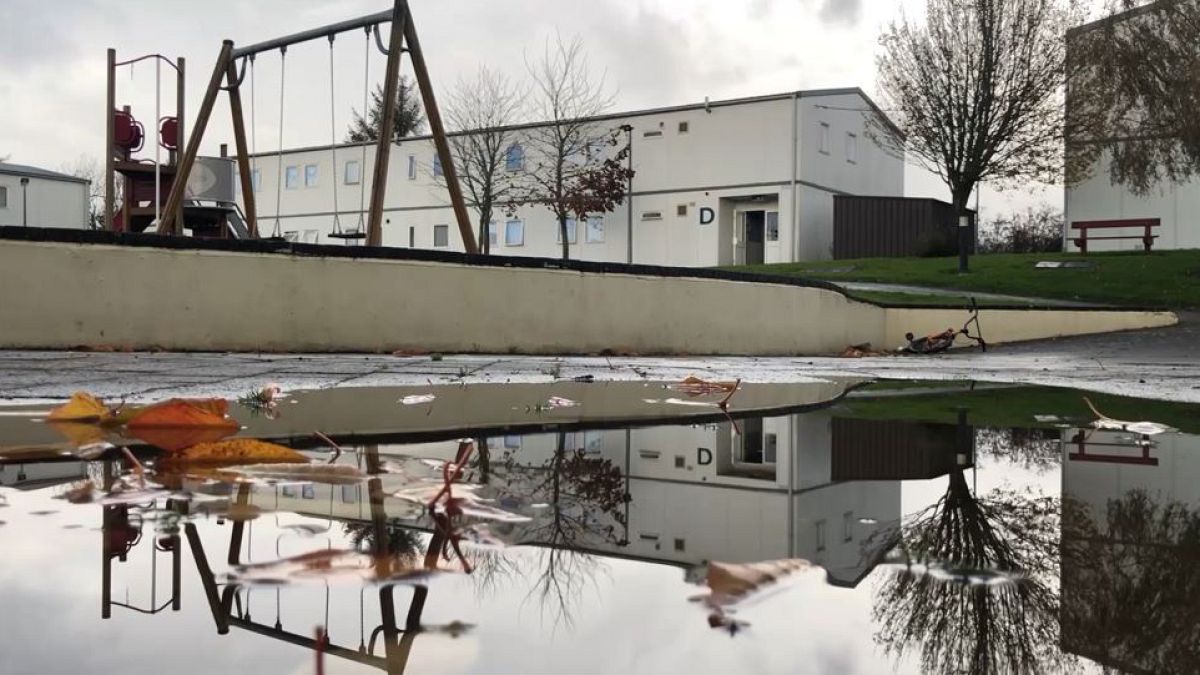Despite government guidance to keep two metres apart to avoid spreading #coronavirus, asylum seekers in centres in Ireland are still living in cramped conditions
The Irish government has warned people to respect social distancing in the wake of the coronavirus crisis - but keeping two metres apart is nigh on impossible for many asylum seekers in the country, who are being housed in shared rooms.
"It has made life a bit difficult because you don’t know who has coronavirus and who doesn’t," activist Bulelani Mfaco told Euronews.
"We already had two reported cases of people living in hostel-styled direct provision centre who have tested positive for coronavirus," he said.
Private contractors make money from running the direct provision centres, so they don't have an incentive to reduce the number of people being cramped into rooms, Mfaco added.
One asylum seeker in Glenvera Hotel in Cork City, who preferred to stay anonymous, revealed he lives in a room of six bunk beds and if one asylum seeker gets infected, then the rest surely will too.
‘’We are always in limbo, we don’t know when they are going to move us to another centre and we don’t know when we will get responses for our cases, we've been waiting for years,’’ he added.
The Department of Justice has stated each centre has been asked to generate a self-isolation capability for use by persons suspected to have the virus.
One Pakistani asylum seeker in Kinsale Road Accommodation Centre run by the company Aramark told Euronews the management is stopping people from taking food to their rooms - which makes it harder to isolate themselves from others who may be infected.
"If we can keep ourselves safe in this kind of confined environment when we are two people sharing one room we still have to share a laundry room and dining halls and other common areas", Mahmud said.
To support social distancing and to reduce contacts in the centres, no visitors are currently being allowed entry.
Graham Clifford, who founded Sanctuary Runners, a support movement for asylum seekers, said the direct provision system has been operating for 20 years. The public were initially told it was a temporary measure.
"It's a very odd relationship in the sense that you know companies are making money out of this system which is totally inappropriate, we hope that would change very soon," he said.
Mfaco said that very practical solutions have been proposed by both the Movement of Asylum Seekers in Ireland (MASI) and Irish Refugee Council, which is to use empty buildings to house people.
There are people who are offering their homes but the problem is the asylum seekers can’t self isolate in a home that is in a different area because the asylum seekers have to get their weekly allowance from the post office of the same area of their direct provision.
The Irish Association of Social Workers (IASW) stated that they are concerned that clusters of infection will emerge in the centres.
Clifford claims the state needs to be solely in charge of housing asylum seekers, needs to speed up the application process, and needs to exclude private contractors from the process.
"To improve the immediate situation relating to the pandemic they must remove the most vulnerable people out of direct provision centres now," Clifford added.
